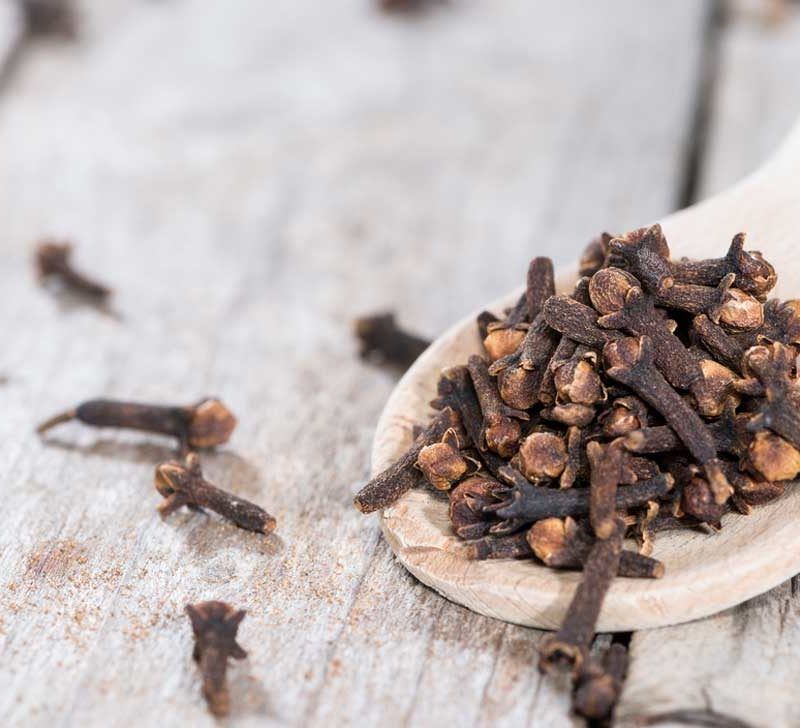Are you curious about the captivating spice known as clove? Wondering about its origin, applications, and health benefits? Look no further! In this article, we will delve into the fascinating world of cloves and uncover their many secrets.
From their aromatic properties to their culinary and medicinal uses, cloves have been an integral part of human culture for centuries.
So, let’s embark on a journey to unravel the mystery behind the question, “What is clove?”
The Versatility of Cloves
Cloves are versatile and offer a myriad of applications in various industries. Whether it’s in the culinary realm, healthcare, or even in traditional rituals, cloves have found their place as an indispensable ingredient.
Let’s explore some of the diverse uses of cloves:
1. Culinary Delights
Cloves have long been cherished in the culinary world for their distinct and robust flavor. With their warm, aromatic, and slightly sweet taste, cloves are a popular addition to both sweet and savory dishes. They lend depth and complexity to spice blends, desserts, and even beverages.
In fact, cloves are an essential ingredient in many traditional recipes such as mulled wine, gingerbread, and spiced chai.
2. Medicinal Marvels
Apart from their culinary uses, cloves have a rich history in traditional medicine. They contain a compound called eugenol, which exhibits antioxidant, anti-inflammatory, and antimicrobial properties.
Clove oil, derived from the buds, has been used to alleviate toothaches, aid digestion, and even provide relief from respiratory conditions.
Additionally, cloves are believed to have analgesic and antiseptic properties, making them a valuable addition to various natural remedies.
3. Aromatic Ambiance
The enchanting aroma of cloves has made them a popular choice for perfumes, soaps, and potpourri. The essential oil extracted from cloves is highly fragrant and often used in aromatherapy to promote relaxation and uplift the mood.
Whether it’s creating a warm ambiance or simply enjoying the delightful scent, cloves have an inherent ability to captivate our senses.
4. Preserving and Flavoring
The natural preservative properties of cloves have made them invaluable in food preservation. Their antimicrobial qualities inhibit the growth of bacteria and fungi, extending the shelf life of pickles, jams, and cured meats.
Additionally, cloves are used to flavor various tobacco products, adding a distinctive note to pipe tobacco and cigarettes.
Health Benefits of Cloves
Cloves not only add a delightful flavor to dishes but also offer a range of potential health benefits. Let’s explore some of the notable advantages associated with this aromatic spice:
1. Oral Health
The antimicrobial properties of cloves make them beneficial for oral health. Clove oil is known to provide relief from toothaches and gum pain. It can be applied topically to the affected area, offering a natural remedy for dental discomfort.
Additionally, cloves have been used in traditional medicine for treating bad breath and promoting overall oral hygiene.
2. Digestive Aid
Cloves have been traditionally used as a digestive aid, thanks to their carminative properties. They can help relieve bloating, gas, and indigestion.
Clove tea or adding ground cloves to meals can promote healthy digestion and alleviate discomfort after a heavy meal.
3. Anti-inflammatory Effects
The eugenol compound present in cloves exhibits potent anti-inflammatory properties. It may help reduce inflammation in the body, making cloves potentially useful for individuals with inflammatory conditions such as arthritis. Incorporating cloves into your diet or using clove oil externally may provide relief from joint pain and swelling.
4. Antioxidant Powerhouse
Cloves are rich in antioxidants, which play a crucial role in combating oxidative stress and reducing the risk of chronic diseases.
Antioxidants help neutralize harmful free radicals in the body, protecting cells from damage. Including cloves in your diet can contribute to overall well-being and support a healthy immune system.
FAQs about Cloves
Are cloves and allspice the same?
No, cloves and allspice are not the same. Cloves come from the flower buds of the clove tree, while allspice is derived from the dried unripe berries of the Pimenta dioica tree. Both spices have distinct flavors and aromas.
How should I store cloves to maintain their freshness?
To maintain the freshness and flavor of cloves, store them in an airtight container in a cool, dark place. Avoid exposing them to heat and moisture, as this can cause them to lose their potency.
Can cloves be used in desserts?
Absolutely! Cloves add a warm and aromatic flavor to desserts. They can be used in cakes, cookies, pies, and even in sweet sauces and glazes. However, due to their strong flavor, it’s important to use them sparingly to avoid overpowering the dish.
Can cloves be used as a natural insect repellent?
Yes, cloves have insect-repelling properties. Clove oil or dried cloves can be used to deter pests such as mosquitoes and ants. Placing cloves in closets or cupboards can help keep insects at bay.
Conclusion
Cloves are much more than a fragrant spice. Their origins in Indonesia and subsequent journey across the globe have solidified their place in various cultures.
From their culinary applications to their potential health benefits, cloves have remained a cherished ingredient throughout history.
So, the next time you encounter the question, “What is clove?” you can confidently share the rich story and numerous virtues of this remarkable spice.

